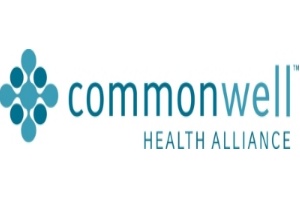 Just a few years ago, things were looking up for the American health care system. We were going to start finding better ways to pay for care: call it pay-for-performance (P4P), value-based purchasing (VBP), or similar terms. We were going to nudge -- or, rather, push -- providers into more clinically integrated systems (e.g., ACOs) to help improve outcomes and to control costs. And, of course, with wider use of electronic health records (EHR), we'd be able to better coordinate care and make decisions based on actual data. It all sounded very promising. Now, though -- what's that old expression about the leopard not being able to change its spots?...
Just a few years ago, things were looking up for the American health care system. We were going to start finding better ways to pay for care: call it pay-for-performance (P4P), value-based purchasing (VBP), or similar terms. We were going to nudge -- or, rather, push -- providers into more clinically integrated systems (e.g., ACOs) to help improve outcomes and to control costs. And, of course, with wider use of electronic health records (EHR), we'd be able to better coordinate care and make decisions based on actual data. It all sounded very promising. Now, though -- what's that old expression about the leopard not being able to change its spots?...
Accountable Care Organizations (ACOs)
See the following -
70% Of Providers Don’t Think Accountable Care Is Worth It
Despite widespread participation in value-based payment arrangements, few providers think that accountable care reimbursement structures offer enough reward for the risk. Half of providers believe that value-based reimbursement will eventually foster population health, reduce costs, and improve the patient experience, says a new report from Availity, but 80% have found a need for more staff, more time, and more investments in order to make it work...
- Login to post comments
athenahealth CMO: Our Big Moonshot for 2017 is EHR ROI
 Almost every healthcare CFO signed off on a big check to implement electronic health records software in the past six years. Not because they knew it would bring the same financial return as a shiny new MRI machine or building to house a slick surgery center, but instead because the federal government said they must. athenahealth chief medical officer Todd Rothenhaus, MD, made that assertion in a pre-HIMSS17 interview...
Almost every healthcare CFO signed off on a big check to implement electronic health records software in the past six years. Not because they knew it would bring the same financial return as a shiny new MRI machine or building to house a slick surgery center, but instead because the federal government said they must. athenahealth chief medical officer Todd Rothenhaus, MD, made that assertion in a pre-HIMSS17 interview...
- Login to post comments
AVIA Names Andy Slavitt as Senior Advisor
 AVIA, the nation's leading network for health systems seeking to innovate and transform, announced that Andy Slavitt will join as a Senior Advisor. Slavitt brings to AVIA over two decades of private and public sector leadership in healthcare and technology. Slavitt previously served as the Acting Administrator for the Centers for Medicare & Medicaid Services (CMS) at the U.S. Department of Health and Human Services under President Obama. There, he oversaw the Medicare and Medicaid programs and the implementation of the Affordable Care Act’s health insurance marketplace...
AVIA, the nation's leading network for health systems seeking to innovate and transform, announced that Andy Slavitt will join as a Senior Advisor. Slavitt brings to AVIA over two decades of private and public sector leadership in healthcare and technology. Slavitt previously served as the Acting Administrator for the Centers for Medicare & Medicaid Services (CMS) at the U.S. Department of Health and Human Services under President Obama. There, he oversaw the Medicare and Medicaid programs and the implementation of the Affordable Care Act’s health insurance marketplace...
- Login to post comments
Blue Cross' $65 Billion Move Away From Fee-For-Service Medicine
In the latest blow to fee-for-service medicine, the nation’s Blue Cross and Blue Shield plans say they are spending more than $65 billion annually — about 20 percent of the medical claim dollars they pay — on “value-based” care that rewards better outcomes and keeps patients healthy...
- Login to post comments
Breaking Down the Role of Patient Engagement in Meaningful Use
 Patient engagement plays a great role in meaningful use, despite much industry debate and conflicting interests. Patient engagement is not just a new patient-centered care philosophy. For providers and hospitals participating in the EHR Incentive Programs, patient engagement is a critical part of receiving incentive payments. Between the different stages of meaningful use and new rule proposals amending the program, the requirements for patient engagement are not always clear.
Patient engagement plays a great role in meaningful use, despite much industry debate and conflicting interests. Patient engagement is not just a new patient-centered care philosophy. For providers and hospitals participating in the EHR Incentive Programs, patient engagement is a critical part of receiving incentive payments. Between the different stages of meaningful use and new rule proposals amending the program, the requirements for patient engagement are not always clear.
- Login to post comments
Can the Healthcare System Change Its Spots?
- Login to post comments
Carequality and CommonWell Health Alliance Agree on Connectivity and Collaboration to Advance Interoperability
 CommonWell Health Alliance and Carequality announced today an agreement to increase health IT connectivity nationwide. The agreement provides additional health data sharing options to a broad range of stakeholders across healthcare, and has three aspects:
CommonWell Health Alliance and Carequality announced today an agreement to increase health IT connectivity nationwide. The agreement provides additional health data sharing options to a broad range of stakeholders across healthcare, and has three aspects:
- Login to post comments
Changing The Structure Of Health Care Delivery Systems: To Benefit The Patient, The Providers, Or The Insurers?
In an important series of 3 articles beginning on the Sunday before the New Year, “Doctors Inc.”, Alan Bavley of the Kansas City Star looked at the increasing acquisition of physician practices by hospitals, and the impact this has on access to, quality of, and cost of health care for patients. [...] Read More »
- Login to post comments
Cloud-based EHR Interoperability Takes Front Stage
 Because our industry is still in diapers, we focus on the lack of basic interoperability and ruminate on why EHR vendors struggle (aka, refuse) to share even basic patient data. But we must take heart, health IT friends, stiffen our upper lips and look to trends and examples that create optimism (i.e., help get us out of bed in the morning): 21st century interoperation is happening in health IT. In a recent interview with Healthcare Dive, Athenahealth CEO Jonathan Bush laid out a vision for how the cloud is the disruptive technology to bring healthcare into the Internet age. He describes “level three interoperation,” where two cloud-based systems connect once and support multiple interoperations that accomplish more than just data sharing.
Because our industry is still in diapers, we focus on the lack of basic interoperability and ruminate on why EHR vendors struggle (aka, refuse) to share even basic patient data. But we must take heart, health IT friends, stiffen our upper lips and look to trends and examples that create optimism (i.e., help get us out of bed in the morning): 21st century interoperation is happening in health IT. In a recent interview with Healthcare Dive, Athenahealth CEO Jonathan Bush laid out a vision for how the cloud is the disruptive technology to bring healthcare into the Internet age. He describes “level three interoperation,” where two cloud-based systems connect once and support multiple interoperations that accomplish more than just data sharing.
CMS Launches Chief Data Officer Position
Earlier this month, we reported how healthcare is increasingly embracing a new C-suite position: chief data officer. Now, the Centers for Medicare & Medicaid Services is getting in on the act, with the appointment of its first CDO, Niall Brennan...
- Login to post comments
Do Hospitals Want Interoperability?
I’ve had this discussion come up over and over again today in a series of discussions that I’ve had at the NYeC’s Digital Health Conference in NYC. Many people are blaming the EHR vendors for not being interoperable...
- Login to post comments
Embarrassing New GAO Report On Hospital Safety Has Two Surprising Bright Spots
Hospitals are flummoxed by the problem of patient safety, according to a report issued by the Government Accounting Office (GAO) just in time for this week’s Patient Safety Awareness Week. Issued at the request of ranking members of the Senate Committee on Finance and Senate Committee on Health, Education, Labor and Pensions, Sen. Ron Wyden (D-Ore.) and Sen. Patty Murray (D-Wash.), respectively, the report reveals three explanations on why hospitals find it so difficult to address patient safety. I am summarizing, but I am not exaggerating...
- Login to post comments
Exclusive: Dr. Farzad Mostashari On His Career, His New Startup And Closing Gaps In The Healthcare System
In June, Farzad Mostashari, MD, the former National Coordinator for Health IT, announced the launch a new company designed to partner with independent primary care physicians to form and join accountable care organizations...
- Login to post comments
Feature Overlaps Between Immunization Information Systems and EHRs
 Immunization Information Systems (IIS) have been around for nearly twenty years. Their functionality, completeness, and usefulness have all increased over this time. IIS and electronic health record (EHR) systems have always had unique features, as well as some overlapping features, and the deployment of EHRs has enhanced the local immunization capabilities of clinician practices. Several critical clinical features that are considered to be core functions of IIS are beginning to be supported by EHRs. This article will review and discuss five such critical features: online data entry, clinical decision support for immunization, reminder-recall, practice-level assessment of up-to-date status, and patient access to their immunization data.
Immunization Information Systems (IIS) have been around for nearly twenty years. Their functionality, completeness, and usefulness have all increased over this time. IIS and electronic health record (EHR) systems have always had unique features, as well as some overlapping features, and the deployment of EHRs has enhanced the local immunization capabilities of clinician practices. Several critical clinical features that are considered to be core functions of IIS are beginning to be supported by EHRs. This article will review and discuss five such critical features: online data entry, clinical decision support for immunization, reminder-recall, practice-level assessment of up-to-date status, and patient access to their immunization data.
- Login to post comments
Halamka: What is the Optimal Future Role for ONC?
 As Meaningful Use winds down and incentive dollars are fully spent, what is the optimal role for ONC going forward? Some pundits have suggested that ONC step aside and return all aspects of HIT policy and technology to the private sector. Others have suggested top down command and control of HIT including centralized governance to ensure interoperability. Harmony is when all parties feel equally good about the path forward. Compromise is when everyone leaves the table equally unhappy. Here’s my view about the future of ONC that includes points from both sides.
As Meaningful Use winds down and incentive dollars are fully spent, what is the optimal role for ONC going forward? Some pundits have suggested that ONC step aside and return all aspects of HIT policy and technology to the private sector. Others have suggested top down command and control of HIT including centralized governance to ensure interoperability. Harmony is when all parties feel equally good about the path forward. Compromise is when everyone leaves the table equally unhappy. Here’s my view about the future of ONC that includes points from both sides.
- Login to post comments